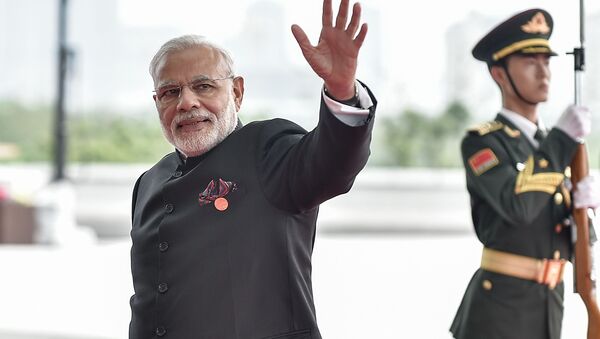This week's attempts to bolster military ties between world's largest and second-largest standing armies come at a particularly fraught diplomatic juncture.
The regional powers share a dangerous, highly militarized border called the Line of Actual Control (LAC), which runs along and through bitterly contested territories such Kashmir, Ladakh and Sikkim. India, Pakistan and China all maintain claims to parts of these territories and the decades long back-and-forth between the nations has been paid for in many lives.
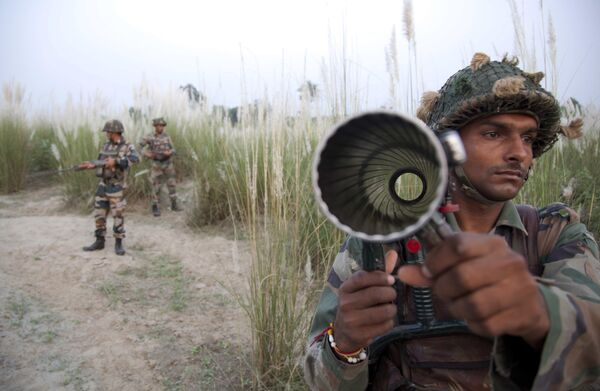
In Kashmir alone this year, there have been nearly 100 deaths, as Indian troops have cracked down on protesters, in what New Delhi insisted was a targeted "surgical strike."
India blames Pakistan for inciting the protesters, and for a raid on an Indian army base in September, which killed 18 soldiers — the deadliest single attack on the Indian Army in 14 years.
China has publicly criticised India's response of sealing its border with Pakistan as a "very irrational decision," which will further complicate India-China relations. A Chinese military expert with the Chinese state official think tank, the Institute of International Relations at the Shanghai Academy, told reporters on Tuesday that:
"There is no evidence that proves Pakistan is behind the attack."
The very public repudiation of India's border strategy, adds further strain to the relationship between Beijing and New Delhi, as they struggle to maintain law and order across their shared border.
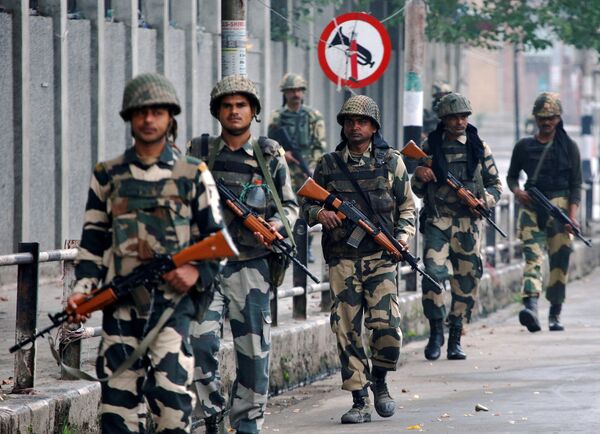
In all, there have been over 200 troop incursions across the India-China border recorded this year, and they continue unabated.
Military leaders on both sides have this year been attempting to tackle the years of mistrust by conducting joint military exercises. Their first-ever joint tactical exercises were held in February, in eastern Ladakh and Sikkim along the disputed 4,057-km LAC. This is to be followed up by an annual Hand-in-Hand (HiH) combat exercise at Aundh, near Pune in Maharashtra, from November 15 to 27.
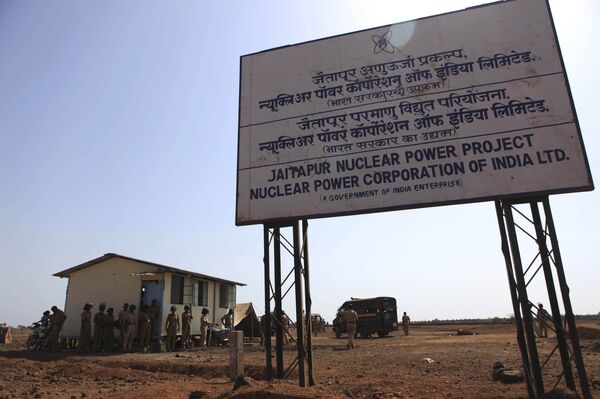
Military sources stress that China and India must work together to tackle a shared existential dilemma affecting both countries: that of "trans-national terrorism." China is grappling with the expanding influence of jihadist group Islamic State in Xinjiang, while India continues to face bloody cross-border militant attacks from neighboring Pakistan.
The move is also being seen as an effort by Beijing to bolster it's military ties with a strong regional ally, to challenge US military expansion on the continent.
However, in recent months, there have been several diplomatic roadblocks stalling Beijing and New Delhi's detente.
China has blocked India's bid for Nuclear Suppliers Group (NSG) membership. It has also refused to support India's attempts to designate Masood Azhar, the head of the militant group Jaish-e-Mohammad, as a terrorist by the UN. The group is active in Indian-controlled Kashmir and aims to separate Kashmir from India and merge it into Pakistan. India blames Jaish-e-Mohammad for attacks on its military bases in Kashmir.
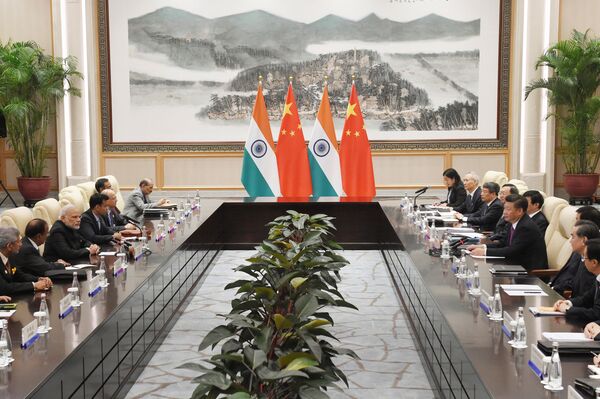
However, China dismissed India's concerns this week, with a statement that said:
"No country should pursue its own political gains in the name of counterterrorism."
It's unclear how this latest diplomatic spat will affect both country's claims that they wish to deepen military ties. The next test of their relationship will be in India next month, during their joint "Hand in Hand" combat exercise.

